Toitū Te Tiriti o Waitangi
Join our journey to protect human rights for all
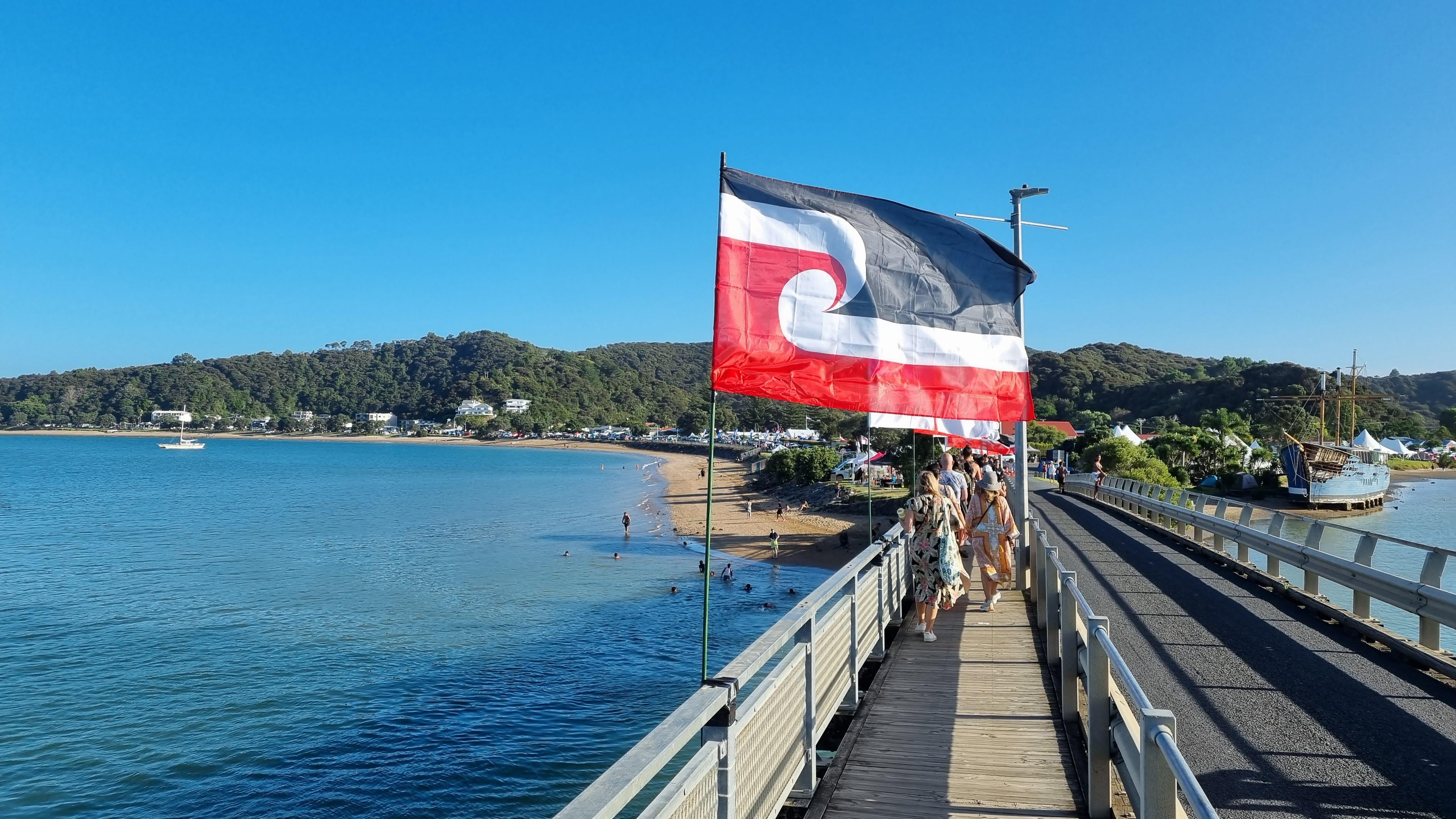
Our journey to uphold Te Tiriti o Waitangi is rooted in the mana of Te Tiriti as one of the foundational documents of Aotearoa New Zealand.
As a global movement, Amnesty International is committed to upholding the rights of Indigenous Peoples and to combatting racial discrimination. In Aotearoa New Zealand, this means respecting and upholding Te Tiriti o Waitangi in our work, in our relationships and in our everyday lives.
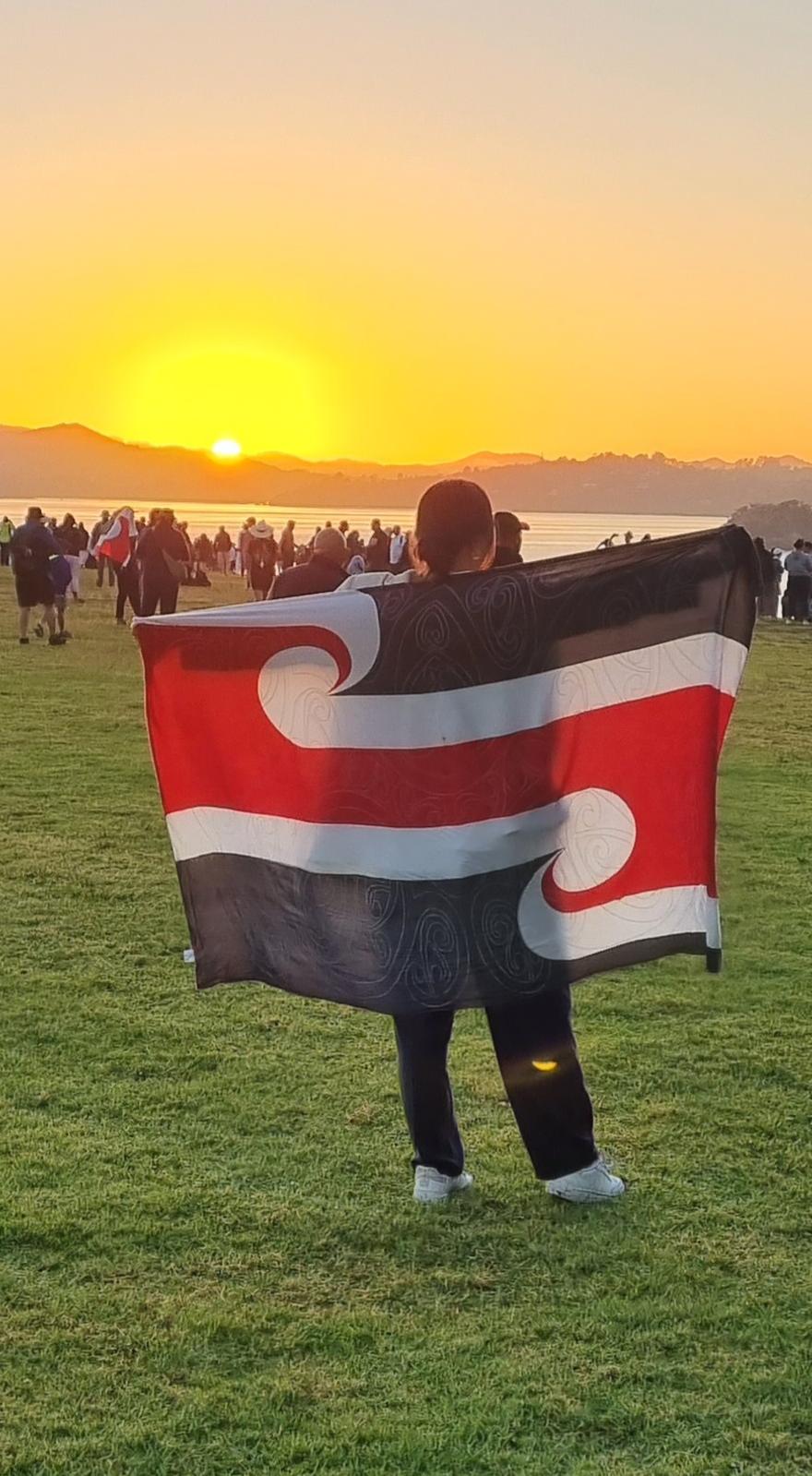
Understanding the past to change the present
Colonisation has caused widespread human rights violations against Indigenous Peoples across the globe. The colonial history of Aotearoa New Zealand has caused deep, enduring harm to Māori communities. While this history long predates the publication of the Universal Declaration of Human Rights in 1948, the harm of colonisation is directly linked to the violation of human rights.
In fact, many of the most significant human rights issues in this country relate to the myriad ways in which the Crown has dishonoured He Whakaputanga o te Rangatiratanga o Niu Tireni (the Declaration of Independence) and Te Tiriti o Waitangi.
The systemic discrimination against Māori has resulted in generations of inequity, and today, Māori are experiencing serious harms as a result. This includes disproportionate representation in the criminal justice system, as well as systemic barriers to health, education and housing.
Amnesty International’s global vision is to build a world where everyone enjoys their human rights. In order to achieve that vision here in Aotearoa New Zealand, we must understand how human rights violations relate to violations of Te Tiriti. From there, our task is to combat breaches of human rights laws and standards in a way that fully and properly recognises Te Tiriti and tino rangatiratanga of Māori, which Te Tiriti upholds.
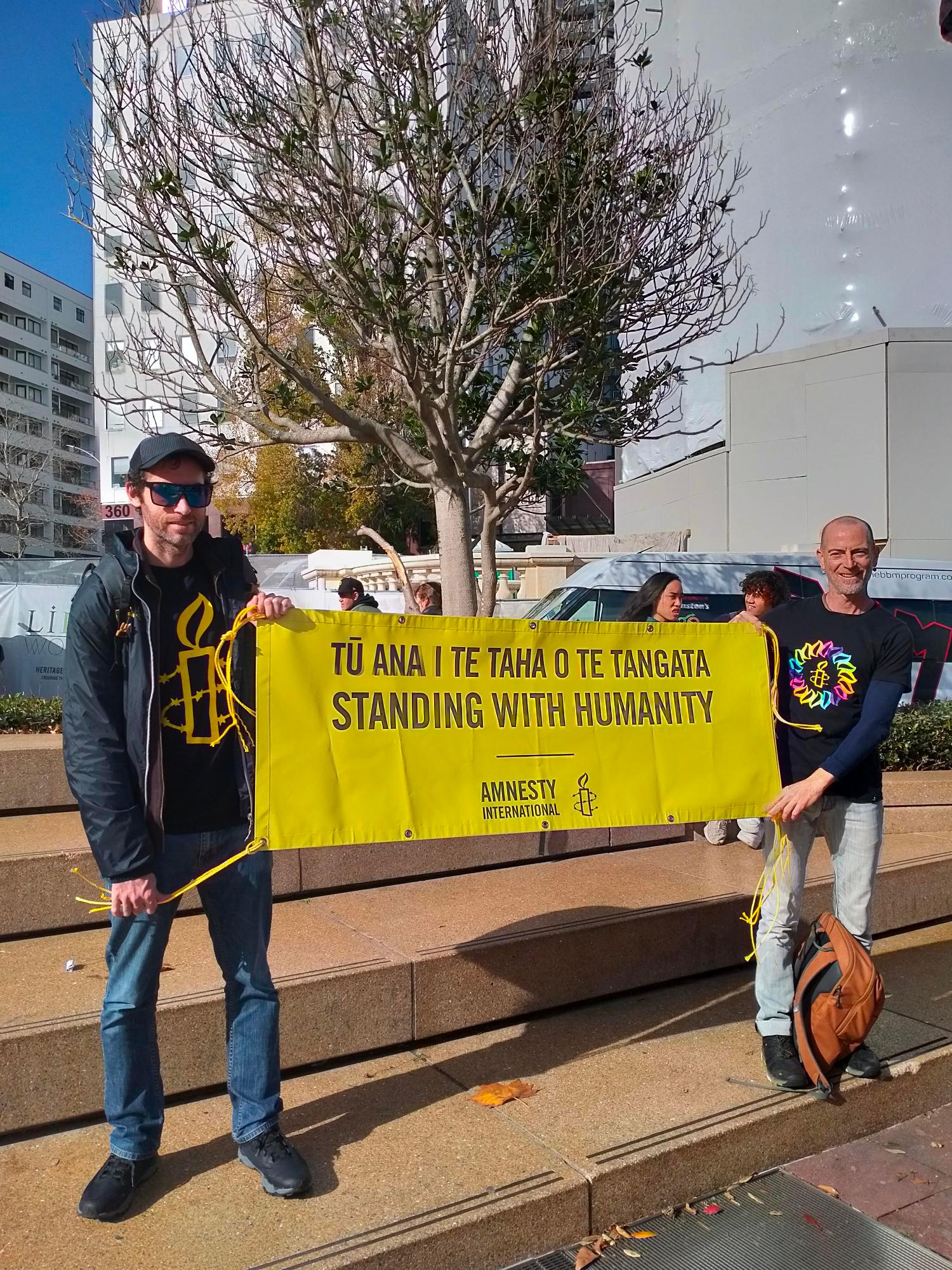
The need for tino rangatiratanga
Te Kāhui Tika Tangata Human Rights Commission (HRC) published two reports in 2023 which, together, outline how colonisation, racism and white supremacy have contributed to injustices and inequities for tangata whenua across every facet of life. Ki te whaiao, ki te ao Mārama was commissioned to inform the Government’s National Action Plan Against Racism. Produced by a taskforce of experts and reflecting a series of community engagements, the report details devastating experiences of racism in Aotearoa today.
Maranga Mai!, a sister report, details how colonisation, racism, and white supremacy have created generations of injustice for tangata whenua - a history which must be accepted by tangata Tiriti.
“There is an urgent need for New Zealanders to accept the truth about the magnitude of racism experienced by Māori today and acknowledge that this history of racism stretches back to colonisation.”
Both reports urge the Government to take bold moves and urgent actions to address racism in Aotearoa. This includes the call for tino rangatiratanga (self-determination) to be restored to tangata whenua, and for this to be enshrined in constitutional reform.
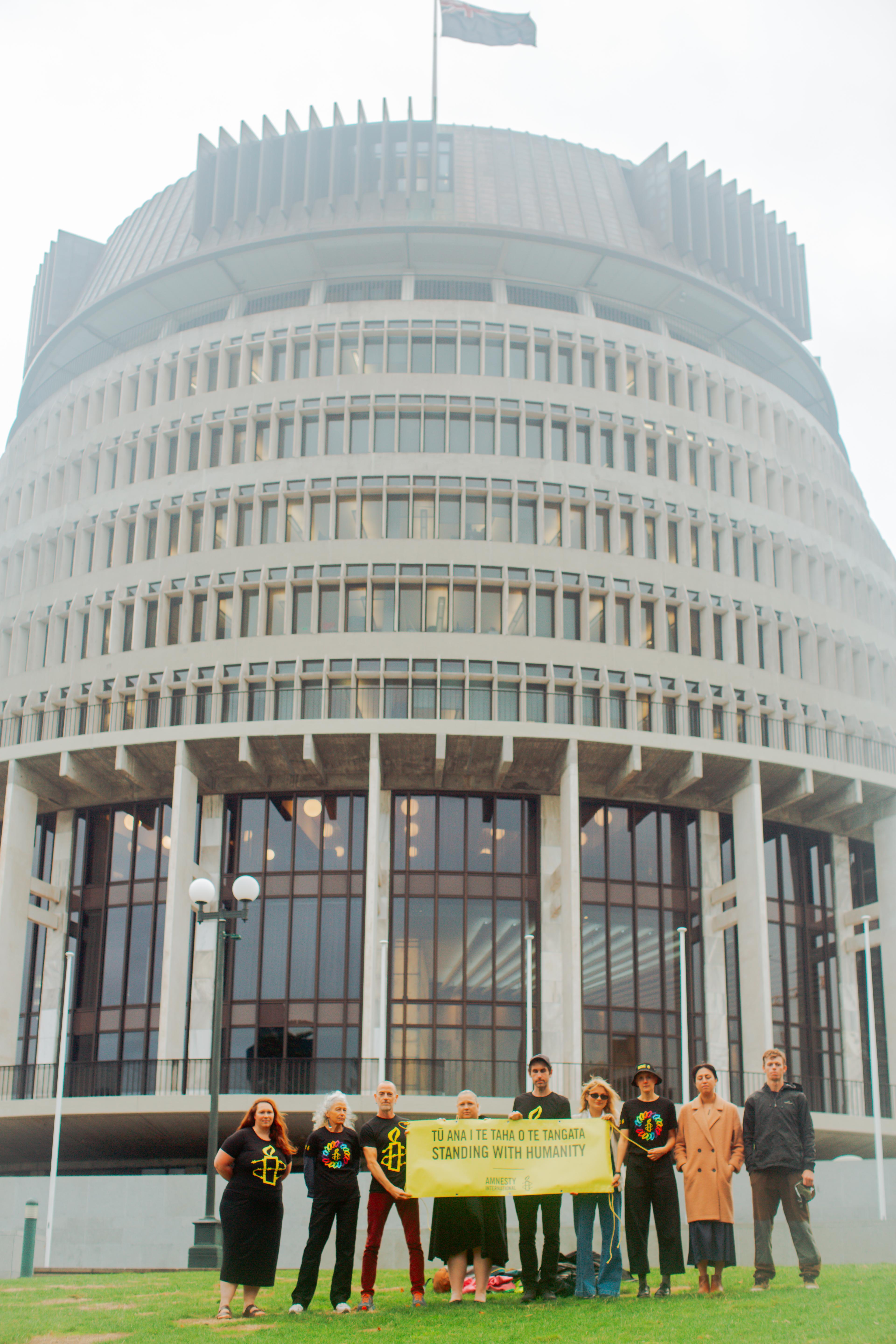
Combatting racism and protecting Indigenous rights around the world
As a human rights organisation, Amnesty International is committed to promoting gender, racial and intersectional justice. Together, we have made a global commitment to become an anti-racist organisation. This means more than simply not being racist people. When it comes to human rights, being anti-racist means going beyond preventing individual cases of racial discrimination – it means combating structural oppression. This involves working towards systemic change and solutions by targeting the root causes of this oppression, wherever it exists in the world.
Amnesty’s journey to become an anti-racist organisation is intimately linked to our work to uphold the rights of Indigenous Peoples around the world. There are more than 5,000 different Indigenous Peoples, comprising over 470 million individuals.
All people should be treated with dignity and in accordance with human rights standards, yet Indigenous Peoples face some of the highest levels of marginalisation and discrimination, and their rights are routinely violated by State authorities.
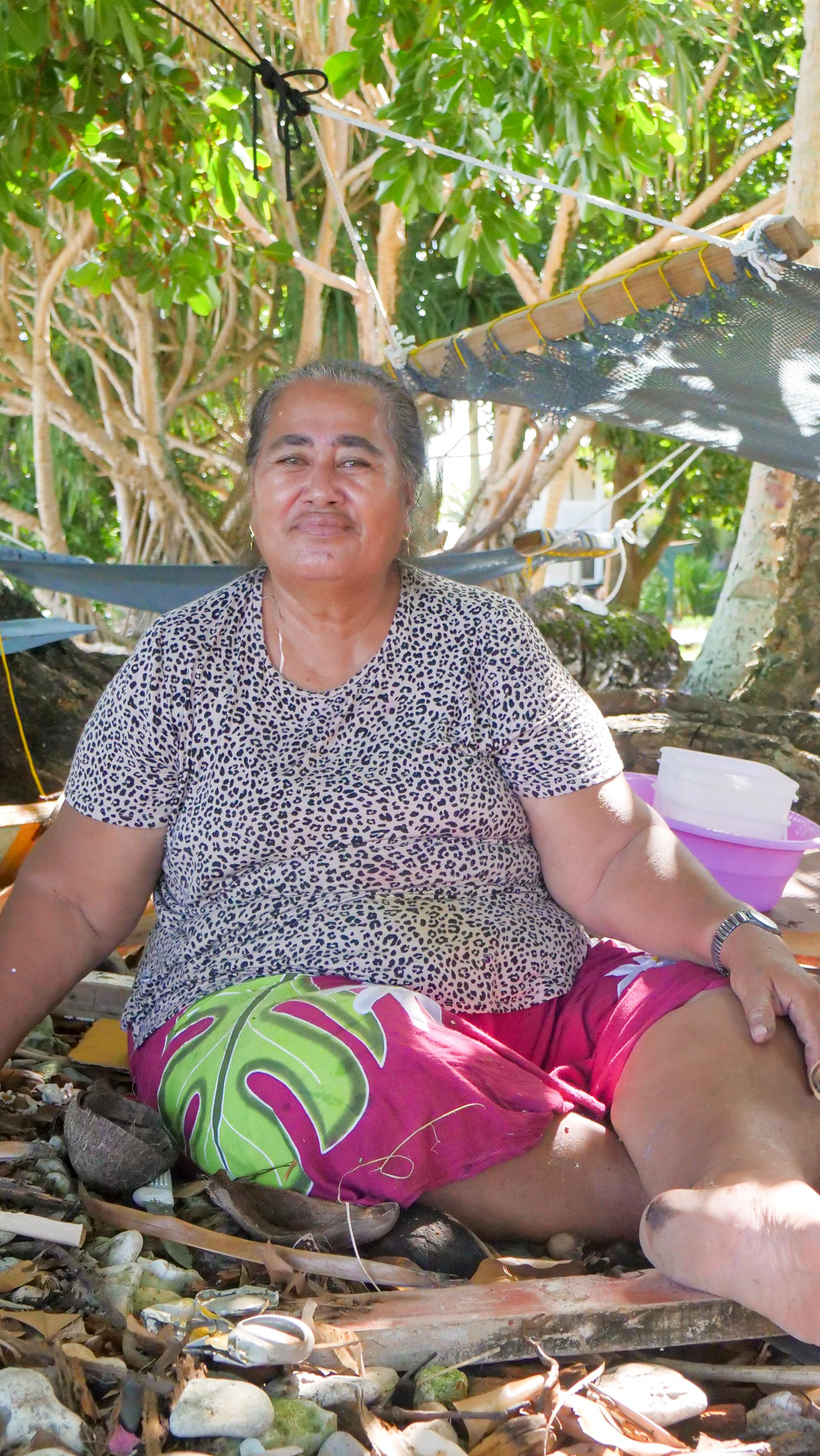
Indigenous Peoples face eviction from the ancestral lands they have inhabited for generations, as well as restricted access to education, health care and housing. As a result, Indigenous Peoples are more likely to live in extreme poverty�� and suffer higher rates of internal displacement, malnutrition and incarceration than other groups.
Indigenous human rights defenders are intimidated, attacked, and sometimes even killed, for their courageous efforts. Despite these dangers, Indigenous Peoples have made their voices heard.
Amnesty International works to support Indigenous Peoples in defending their rights, including those enshrined in the United Declaration on the Rights of Indigenous Peoples.
At a national level, we demand that states apply and develop laws to protect Indigenous lands, cultures and livelihoods.
Moving forward together
As a human rights community here in Aotearoa, Amnesty International has much to learn about Te Tiriti o Waitangi. We are committed to being proactive in our learning, to continue to build relationships and to further our knowledge in order to progress and protect human rights.
For staff of Amnesty International Aotearoa New Zealand, this means undertaking ongoing cultural competency training, as well as investing time in learning te reo Māori.
For our Amnesty Community, we are in the process of designing new training opportunities to grow the skills and knowledge of the local movement.
Together, we have always advocated for policies and legislation that would bring this country in line with international human rights standards. At a deeper level, we must call for transformational constitutional change that enshrines the rights of Māori. He Whakaputanga and Te Tiriti o Waitangi must guide our pathway towards this transformation, and we look forward to sharing more about the ways in which you can join this journey as a champion for human rights.
